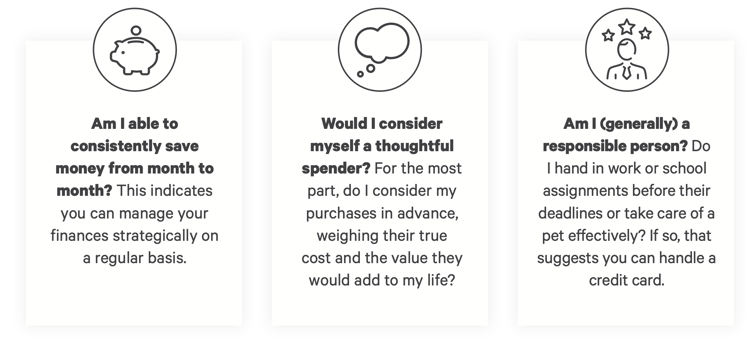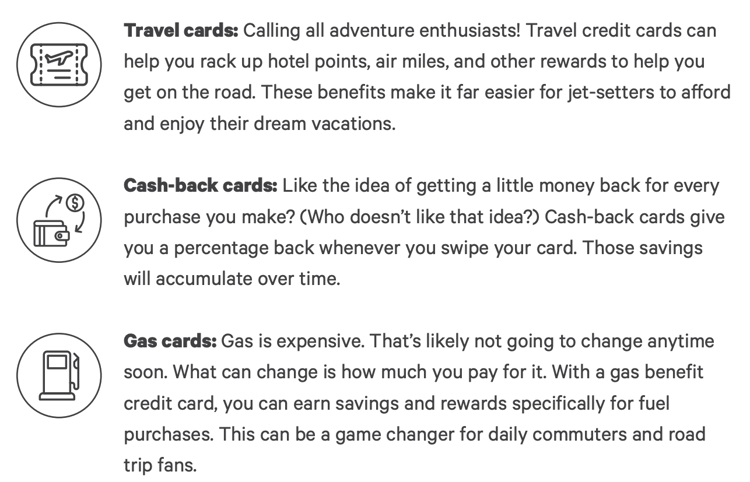A credit card is a handy financial resource that grants you the ability to access funds to make purchases. Unlike using cash or a debit card, where you spend money that’s already in your bank account, a credit card allows you to spend money you will need to repay later. It’s like getting a short-term loan for your purchases.
When you use a credit card, you agree to repay the borrowed amount. Making those payments on time can help you build a history of good financial habits. If you ever need to take out a larger loan, such as a mortgage, this proof of timely payments can be very helpful for getting approved.
The Importance of Credit Cards for Young Adults
Using credit cards well can help young adults establish a credit history, which opens up lots of doors for their future. For example, young adults may need a solid credit history to rent an apartment, buy a home, or even land their dream job. Credit cards also facilitate online purchases, allow for contactless payments, and make auto-paying bills a breeze.
However, young adults must use their cards well to realize these benefits. That starts with being informed about what credit is and knowing how you can use it to boost your financial health.

-1.jpg?width=494&height=354&name=Woman-CreditCard%20(1)-1.jpg)
.jpg?width=1545&height=2000&name=2023-09-EB-iQCreditUnion-A%20Comprehensive%20Guide%20to%20Credit%20Cards%20for%20Young%20Adults%20(2).jpg)



